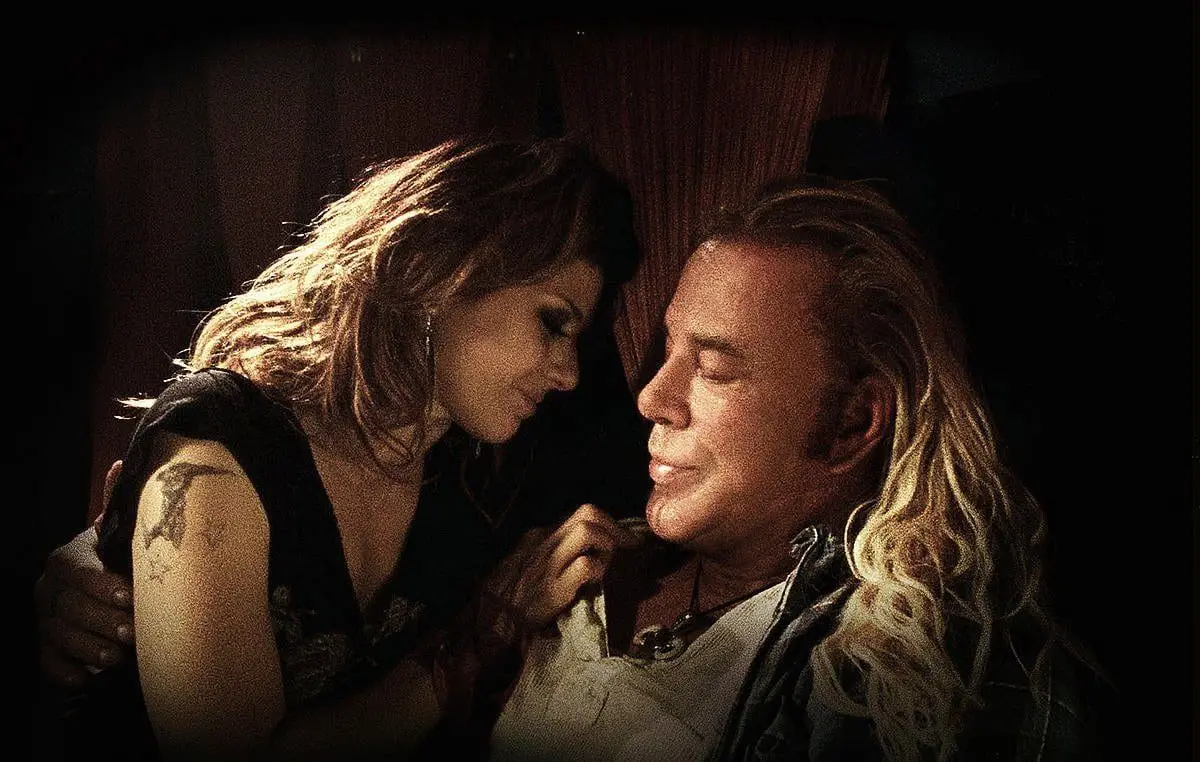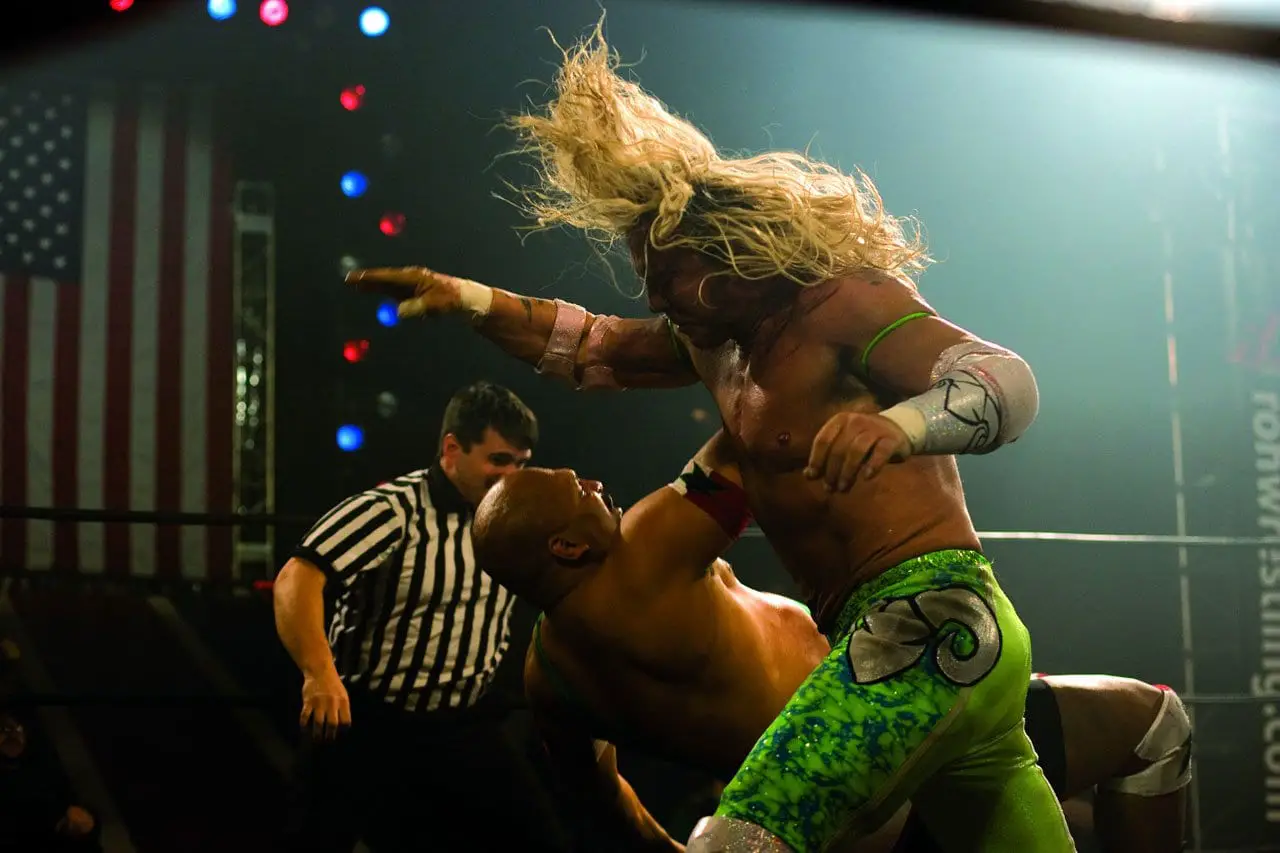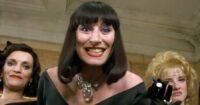I remember seeing The Wrestler in a small theater called The Esquire here in Cincinnati, Ohio. It was a theater that typically featured independent releases and is located in a more art-friendly part of town. Any film directed by Darren Aronofsky, especially then, was likely to be well attended at that theater, but I remember wondering what the crowd would be like prior to getting to the screening. Would it be an arthouse crowd? Would it be a more typical pro-wrestling-friendly crowd, eager to see an industry they loved immortalized on-screen? To my surprise, the crowd was neither hipsters nor wrestling fans, and the screening was full of people ranging between 45 and 60 who perhaps thought they were going to see a modern day Rocky. When the final credits rolled and the lights came on, I’ll never forget their disappointment. The Wrestler was no Rocky. What it was, though, was an accurate portrayal of an industry that was largely misunderstood by the masses, filled with secrets and a subculture only understood by those in it. This film put a bright light on that industry and I knew that the film was eerily accurate, because I was a member of that subculture and would be working in the business a year later. In this article, I will be revisiting the film, its legacy, and also looking at it from the perspective of a film critic with firsthand knowledge of how the wrestling business works and how accurate the film was in portraying the industry.
The Wrestler was both a blessing and a curse for the professional wrestling business. A major motion picture with an A-list director and a triumphantly returning Mickey Rourke meant a lot of people paid attention to this film, yet it exposed a lot about the business. You see, pro wrestling likes flying under the radar, not having the rest of the world privy to its secrets. It lends to the carnival-like mentality the business has never lost, dating back to, you guessed it, the days when pro wrestling was a carnival act. In this film, Mickey Rourke plays Randy “The Ram” Robinson, a professional wrestler 20 years past his glory days. He’s still trying to not only earn a living but also clinging to a dream that he has one more major run left in him on a national stage and not in the bingo halls and high school gyms in which he’s currently wrestling. Randy is a pro wrestling stereotype in so many ways: his look hasn’t changed despite the times changing. Long, bleached blond hair and neon gear was his look when he was on top of the business and, in an effort not to be forgotten, Randy kept the look. Gotta have a gimmick, brother. Later in this article, we’ll explore some of the other ways he’s a stereotype, particularly with his relationships and inability to escape the business.
Randy works at a grocery store during the week, wrestling on the weekends for uncertain payoffs, as displayed early in the film when a promoter hands him a light envelope and says they didn’t draw the crowd they hoped for. We see Randy locked out of his trailer and forced to sleep in his van because he’s behind on rent. The money he had made in the ’80s during his most successful years is now all gone, which is a common problem in the wrestling business. Tales of wrestlers who earned more money in a few years than most people make in their entire adult life is commonplace and Randy “The Ram” played the stereotype perfectly, shining a light on an ugly reality. In one of the film’s most memorable scenes, we see Randy in a wrestling match against a wrestler called the Necro Butcher, with the ring filled with barbed wire weapons, glass, staple guns, and all sorts of weapons.
2008 was during the craze of “ultra-violent death matches” and Necro Butcher was the star of that craze, known for taking insane amounts of punishment to make up for his lack of athletic ability. (Authors note: I once raced Necro to a cooler for the last beer backstage after a show. Despite winning the race, I gave him the beer anyway as part of the “respect the guys who have been around longer than you” mentality pro wrestling has.) Bleeding for dollars became almost a necessity for newer wrestlers trying to make a name for themselves and older talents like Randy, desperate to keep their name alive. Bloodthirsty crowds, just like here in the film, cheered on as staple guns replaced headlocks and crowd psychology was replaced by acts of human torture that did hurt the wrestlers a great deal, as the film showed.

Mickey Rourke deserved every ounce of praise he received for the role. Not only did Rourke dive headfirst into the wrestling aspect of the film, he broke hearts all throughout, taking the audience on an emotional ride that teased happy endings but never made good on those teases. When Randy had his heart attack after his “death match”, he was told he would never wrestle again. To a man who had given up everything, all to chase the roar of the crowd night after night, you might as well have given him a death sentence and Rourke played it as if it were a life-ending tragedy. We see Randy try to make good with the daughter he had abandoned years prior, another ugly truth revealed in yet another pro wrestling stereotype played perfectly. These “road warriors”, wrestlers who never stopped touring, hitting a different town night after night, did often forsake their families. The wrestling business is filled with stories of stars from years past who found it easier to quit trying rather than always play catch-up with the families who sat at home while they were off in cars, planes, arenas, and bars. The road life and family life simply weren’t a good match and, as Randy told his daughter during their attempted reconciliation, he tried to pretend she didn’t exist so he didn’t have to feel any guilt.
The film pulled no punches in showing the harm caused by Randy being an absent father, yet one more sign that The Wrestler wasn’t your typical sports film. Randy is genuine in trying to form any kind of relationship with his daughter and, despite the years of pain from not having her father in her life, she wants it too. We see tender moments between them, which makes the ultimate conclusion even more devastating. Randy goes out and parties all night, like he always has, and then sleeps all day, missing his dinner date with his daughter. This is the final straw that says to her that her father hasn’t changed and she feels foolish for thinking he perhaps did. One of several happy endings the film could have given us but instead, opted for painful realism. A lot of pro wrestlers from that time period never got to make good with their kids. The damage was done, the timing didn’t work out. Those kids got used to their fathers missing birthdays and holidays and, as they got older, not having a father was just normal for them. The scene where Randy tries to apologize but it’s too late is hard to watch because you feel for both father and daughter. He just can’t break his own cycles, and she’ll never have the dad she deserves.

Randy’s desire for any kind of companionship is a major subplot of the film. We see him frequently in a strip club, where he seeks the friendship and attention of a stripper with the stage name Cassidy, whose real name is Pam, and is fearlessly played by Marisa Tomei. While others may have come to different conclusions about why a stripper and strip club would be such an important part of the film, in reality, there’s a special kinship between the professions of stripping and pro wrestling. Both are selling fantasy first and foremost and, more so in yesteryear than today, wrestlers felt that strip clubs were a safe place to hang out, a place where they wouldn’t be the center of attention after a show and they could just relax. That’s exactly the case with Randy here—it’s obvious that he feels comfortable at the strip club and he doesn’t have to be “in character”. He looks at Cassidy and sees himself—someone that is running out of time in a cosmetic profession where youth and looks are king and, despite Randy and Cassidy both knowing the tricks of their respective trades, the sands in their respective hourglasses were almost gone.
In many ways, Cassidy is what Randy wishes he could be. She has a plan to leave her profession behind. She has her child with her still, despite being gone every night. She has goals and also the self-control to mostly keep Randy at an arm’s length distance, despite the obvious chemistry between them. Throughout the second half of the film, we see both Randy and Pam (she finally tells him her real name) struggle with their feelings for each other. Randy wants and needs her most when he is retired, desperate to find something to make him feel better and less alone. Pam strives to ignore her feelings, wanting to start fresh for her and her son, but she can’t shake what she feels for Randy. Randy’s decision to give up on retirement and take a highly lucrative match—a rematch from 20 years ago when he was on top of the world—against the doctor’s orders sends Pam on a mission to proclaim her love for Randy, driving to the show, and making it backstage mere seconds before Randy goes out for his match. In her mind, this is their big romantic moment, when he would declare his love for her, and they could move into their future together. Instead, she finds that Randy has been swept up by the wrestling bug again. His home is the ring. The noise from the crowd his motivation. This is the only life he knows.

The film’s closing moments are the big match. Intuitively as an audience, we know we’ve been deprived of two happy endings already both with Randy’s daughter and most likely with Pam. We’re expecting to see our hero character at least stand tall here, going up against his greatest in-ring foe. What we got instead was Randy’s body failing. His doctor’s warnings about his health were coming true. Randy refused to end the match any way but how he wanted it to end: with him heroically flying off the top rope (his signature “Ram Jam” flying headbutt). He wanted his moment. He struggles to climb the ropes and when he makes it, he looks in the crowd for Pam. Minutes earlier she said “I’m here” but she no longer was. Pam was gone, perhaps unable to watch, and equally as possible knowing Randy couldn’t leave this life behind and start fresh and she didn’t want to subject her and her son to any future pain. Randy flew through the air and the credits hit, leaving audiences to wonder if Randy died in the ring a hero to his fans or if his cycle continued and he hit the next town the next day, a tragic figure either way.
The Wrestler was not a “feel good” sports film. None of our characters found happiness or inner peace—no closure anywhere. The film was gritty, emotionally difficult, and brutally honest about a profession filled with secrets. Mickey Rourke had his moment in the sun after the film’s release, although probably not to the level he wanted or others expected. A lot of real-life pro wrestlers appeared in the film and made more money in their careers because they got to say they were in the film. The film, combined with a string of preventable deaths in the pro wrestling industry, did bring about much-needed conversations about the business. Some positive changes have come about. Is that the film’s legacy? I don’t know. What I do know is that The Wrestler is a brilliantly acted, written, and directed film that was more interested in telling an accurate and hard to watch story rather than alter it to appeal to the masses and will always stand the test of time as a modern classic in my book.
We publish new content daily that can easily be found by following us on Twitter, Instagram, by joining our Facebook Page or becoming an email subscriber here on the site. Thank you as always for your support of 25YL!
If you would like to write for 25YL leave us a message on our website here or send an email to: 25YearsLaterSite@gmail.com


